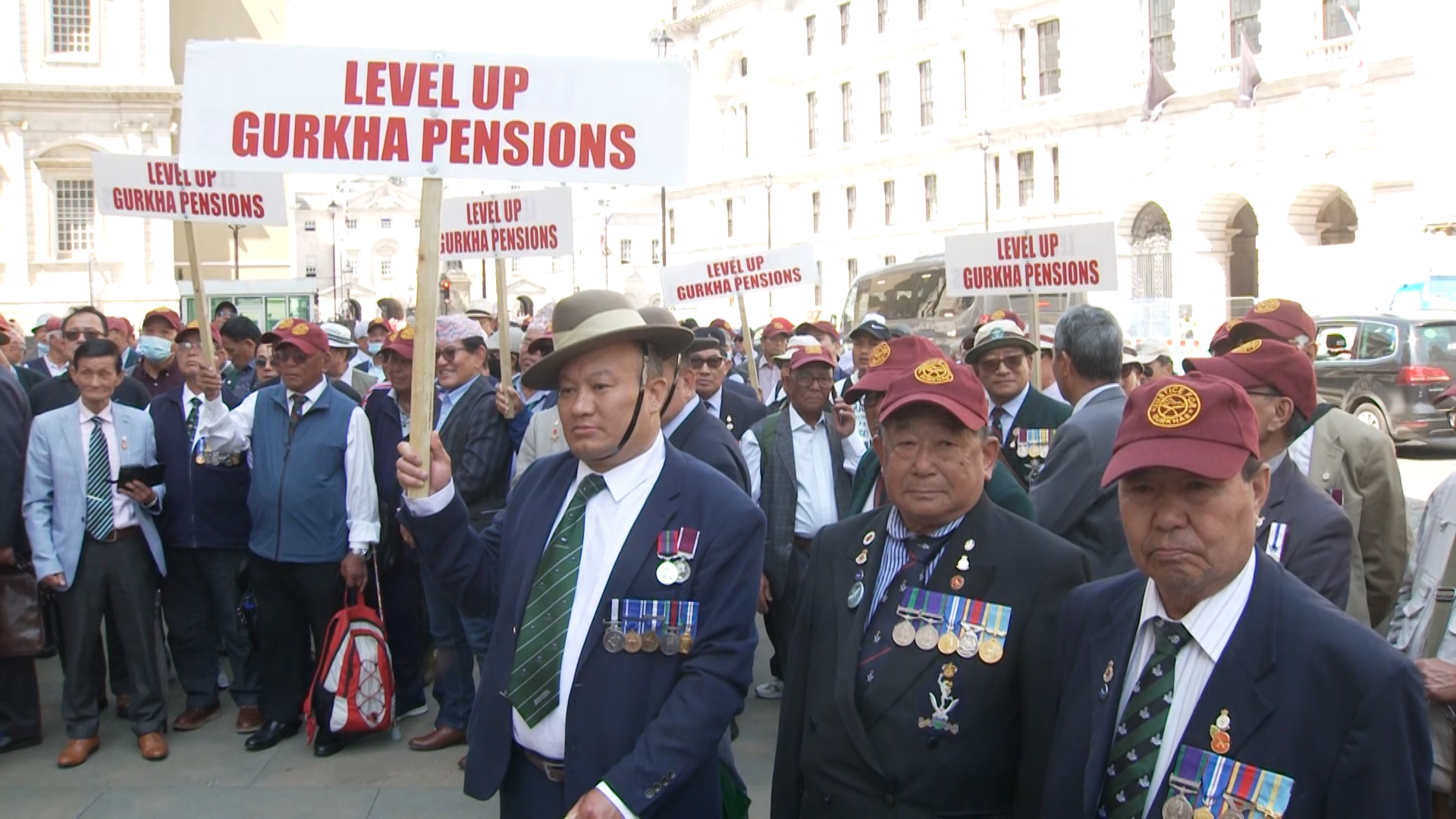
Gurkha community campaigns for equal pension rights on MOD's doorstep

Members of the Gurkha community gathered outside the Ministry of Defence (MOD) building to continue their pensions protest.
Around 100 Gurkha veterans arrived at the building in Whitehall, central London, to call on the UK Government to agree to pay them the same benefits as the British counterparts they have served with.
Members of the Gurkha Pension Scheme before 1997 receive a smaller payment than their British colleagues and they are calling for parity.
The Gurkhas, recruited from Nepal, have a reputation as hard and loyal fighters and are known for the trademark curved kukri blades they carry sheathed on their belts.
In 2021, Gurkha veterans staged a hunger strike in campaign for equal pension rights.
The Gurkha servicemen eventually ended their 13-day hunger strike after the Government agreed to enter talks with the Nepalese Embassy over equal pensions for veterans.
The group had not eaten for almost a fortnight, with one 60-year-old admitted to hospital with heart problems, before returning to his strike outside Downing Street.
Supporting the Gurkha protest today was Hari Budha Magar, a Gurkha veteran who, in May, made history by becoming the first double above-knee amputee climber to summit Everest.
Gurkhas who served from 1948 to 2007 were members of the Gurkha Pension Scheme until the differences between Gurkhas' terms and conditions of service and those of their British counterparts were removed.
Serving Gurkhas, as well as those with service on or after 1 July 1997, could then opt to transfer the Armed Forces Pension Scheme (AFPS).
The change was introduced in 2007 after an amendment to immigration, backdated to 1 July 1997, meant more retired Gurkhas were likely to settle in the UK on discharge, whereas the Gurkha Pension Scheme had lower rates as it had assumed they would return to Nepal where the cost of living was significantly lower.
A year's service after 1 July 1997 counts as a year's service in the AFPS.
However, a year's service before 1 July 1997 only counts as a proportion of a full-service year – between 23% and 36% depending on rank.
This was based on the Indian Army Model, and is still deemed appropriate for the cost of living closer to home – before the Brigade of Gurkhas moved base from Hong Kong to the UK.
The reason 1 July 1997 was selected as the key date is because that is when the UK became the base for the Brigade of Gurkhas.
An MOD spokesperson said: "The MOD met with representatives of the Nepali Government and the Gurkha veteran community at the third Bilateral Gurkha Veteran Pensions Working Group.
"We continued the discussion around pension issues and concerns affecting the Gurkha veteran community.
"The MOD has listened to the issues presented and undertook to reply to several issues before the next meeting of the working group, and what we hope will be further talks at ministerial level later this year."









